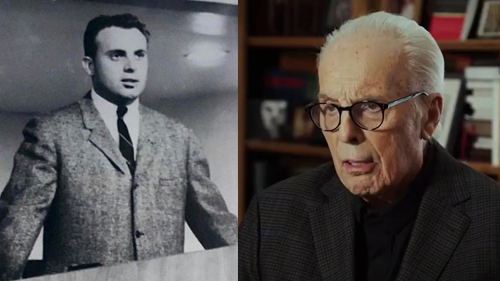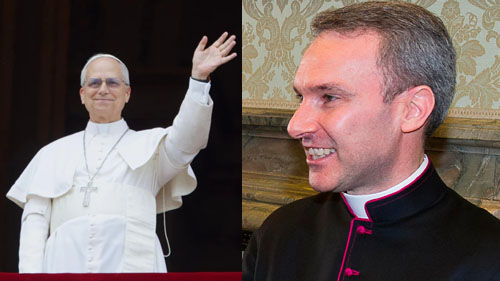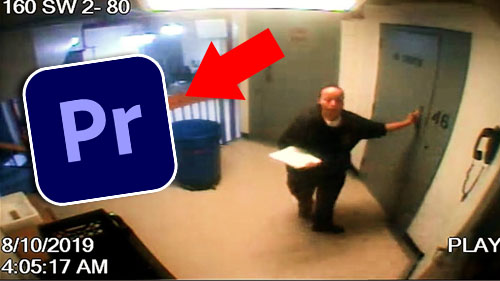| Recent Featured Videos and Articles | Eastern “Orthodoxy” Refuted | How To Avoid Sin | The Antichrist Identified! | What Fake Christians Get Wrong About Ephesians | Why So Many Can't Believe | “Magicians” Prove A Spiritual World Exists | Amazing Evidence For God | News Links |
| Vatican II “Catholic” Church Exposed | Steps To Convert | Outside The Church There Is No Salvation | E-Exchanges | The Holy Rosary | Padre Pio | Traditional Catholic Issues And Groups | Help Save Souls: Donate |  |









 " />
" /> " />
" /> " />
" /> " />
" /> " />
" />




Brian Harrison deals a deathblow to Sedevacantism?
Recently, a number of attacks have been made against the Sedevacantist position (the position that Antipope John Paul II is not a real Pope) by numerous "traditional Catholic" publications. In a recent article in This Rock magazine, Brian Harrison attempted to refute Sedevacantism by asserting on the authority of Pope Pius XII that a heretic would be elected the Pope validly. The article was reproduced in large part in MANCIPIA (May, 2001), the publication of the St. Benedict Center in Richmond, NH. Due to the fact that this article seems to have given a lot of confidence to the defenders of Antipope John Paul II, we felt that we needed to respond. The main point of Mr. Harrison's article is a quotation from Pope Pius XII's decree Vacantis Apostolicae Sedis, Dec. 8, 1945, on the law governing conclaves.
After quoting this portion of the decree in their May, 2001 MANCIPIA, the St. Benedict Center made the following comment: "Therefore, even if John XXIII was a Mason (which he is accused of having been), and even if John Paul II is a heretic for his various non-Catholic utterances on everything from the present status of the Old Covenant to the possibility of salvation in false religions, these bishops were still validly elected to the Sovereign Pontificate."
Feeling confident that the decree of Pope Pius XII refutes Sedevacantism, the St. Benedict Center bluntly asserts that even if John Paul II is a heretic he would still have been elected Pope validly. Unfortunately for them, however, such a statement is absolutely untenable when one examines the decree of Pius XII more closely, in addition to the other facts from the Magisterium.
Before addressing Vacantis Apostolicae Sedis of Pius XII, we will repeat that it is impossible for a heretic to be a Pope. I repeat, a heretic cannot be a Pope. Again, I repeat, A HERETIC CANNOT BE A POPE. This is an incontrovertible dogmatic fact, which is rooted in the solemnly defined dogma that a heretic is not a member of the Catholic Church.
Here we can see that all Catholics are bound under pain of mortal sin to believe that a heretic is outside the Catholic Church. Here are some other testimonies from the Magisterium which affirm this fact.
This last solemn profession of faith by Pope Innocent III in Eius exemplo demonstrates how foreign to Catholic belief - that is to say, how heretical - is the idea that a heretic can be inside the Church. Nevertheless, this is exactly the idea proposed by the St. Benedict Center and Brian Harrison. And since it is a dogma that a heretic cannot be inside the Church, it is a dogmatic fact (a fact which if it were not true would render a dogma false) that a heretic cannot be a Pope, since a Pope is inside the Church.
Therefore, it is most certain that a heretic cannot be a Pope, because it is absurd to imagine that one who is outside can command in the Church. Despite this, in the June, 2001 issue of The Angelus (the publication of the Society of St. Pius X) it is argued that a heretic, while no longer being a member of the Church, can be its head. 8
This shows what preposterous lengths some non-sedevacantists will go to in order to defend Antipope John Paul II.
When examining these magisterial statements, it can easily be seen just how heretical it is to assert that a heretic can be a Pope. What's ironic about this is that the St. Benedict Center prides itself on championing the very Bull Cantate Domino (cited on page 1) which defines that heretics are outside the Church! The very bull they claim to champion condemns their heretical idea - that a heretic can be inside the Church!
What, then, does Pope Pius XII mean in Vacantis Apostolicae Sedis? He says: "None of the Cardinals may in any way, or by pretext of any excommunication, suspension, or interdict whatsoever, or of any other ecclesiastical impediment, be excluded in the active and passive election of the Supreme Pontiff."
First off, one needs to understand that excommunication can be incurred for many things. Historically, excommunications were distinguished by the terms major and minor. Major excommunications were incurred for heresy and schism (sins against the faith). Those who received major excommunication for heresy were not members of the Church (as we have just proven at length). Minor excommunication, however, did not remove one from the Church, but forbade one to participate in the Church's sacramental life. Pope Benedict XIV made note of the term major excommunication.
Minor excommunication, on the other hand, was incurred for things such as violating a secret of the Holy Office (AAS, 1-82;9-232), falsifying relics (c. 2326), violating a cloister (c. 2342), dueling (c. 2351), etc. Such actions, though gravely sinful, did not separate a person from the Church. And though the terms major and minor excommunication are no longer used, it remains a fact that a person could incur an excommunication (for something other than heresy) which would not separate him from the Church, and he could incur an excommunication for heresy which would separate him from the Church.
Therefore, a Cardinal who receives an excommunication for heresy is no longer a Cardinal; because heretics are outside the Catholic Church (de fide, Pope Eugene IV). But a Cardinal who receives an excommunication for something else is still a Cardinal, though in a state of grave sin. So when Pope Pius XII says that all Cardinals, whatever excommunication they are under, can vote and be elected in a Papal conclave, this only refers to Cardinals who have received an excommunication for something other than heresy, since a Cardinal who has received an excommunication for heresy is not a Cardinal at all. Simply, Pope Pius XII is not referring to heretics, but Catholic Cardinals who are under excommunication.
One can easily detect, therefore, the grave mistake of Mr. Harrison and the St. Benedict Center in reading this decree of Pope Pius XII. Their mistake stemmed from their failure to comprehend the dogmatic fact that a heretic is not a Cardinal. Thus, they failed to realize that a declaration about Catholic Cardinals under excommunication by Pius XII could not include heretics, since a heretic is not a Catholic Cardinal.
It's also worth noting that in the same article by Mr. Harrison (the majority of which is spent trying to assert that a heretic would be elected and remain Pope validly) he contradicts himself by admitting that canon 188.4 of the 1917 Code of Canon Law teaches that a cleric who publicly defects from the faith would lose his office without declaration. The whole thrust of his article - that no matter how bad a heretic one is he is still the Pope - is contradicted by his own words in the self-same article. The fact remains that the St. Benedict Center and Mr. Harrison are heretics for denying the dogma defined by Pope Eugene IV - that a heretic is not a member of the Church.
[1] Decrees of the Ecumenical Councils, Vol. 1, p. 578; Denzinger 714.
[2] Decrees of the Ecumenical Councils, Vol. 1, p. 571; Denzinger 705.
[3] The Papal Encyclicals, Vol. 4 (1939-1958), p. 41.
[4] The Papal Encyclicals, Vol. 2 (1878-1903), p. 393.
[5] The Papal Encyclicals, Vol. 2 (1878-1903), p. 393.
[6] Denzinger 423.
[7] The Papal Encyclicals, Vol. 2 (1878-1903), p. 401.
[8] The Angelus, "A little Catechism on Sedevacantism," June, 2001, p. 21.
[9] Cited in Actes de Vatican I. V. Frond pub.
[10] Decrees of the Ecumenical Councils, Vol. 1, p. 386.
[11] The Papal Encyclicals, Vol. 4 (1939-1958), p. 41.
[12] Decrees of the Ecumenical Councils, Vol. 1, p. 646.
[13] The Papal Encyclicals, Vol. 1 (1740-1878), p. 84.
Sign up for our free e-mail list to see future vaticancatholic.com videos and articles.
Recent Content
^